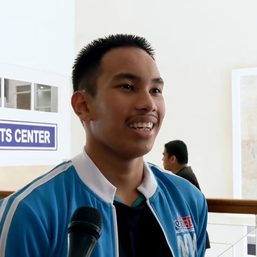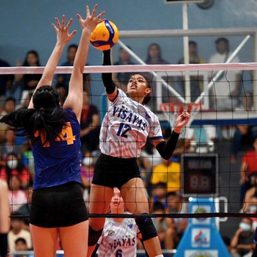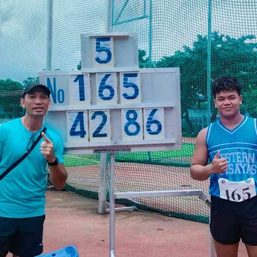SUMMARY
This is AI generated summarization, which may have errors. For context, always refer to the full article.

Every year, the President’s State of the Nation Address provokes public discussion about the extent to which Daang Matuwid’s promise is realized in practice.
Experts and citizens alike weigh in on how the administration’s good governance and inclusive growth agenda has made an impact in our everyday lives. The SONA in a few days’ time is particularly exceptional. As the President’s final address, it prompts questions not only about this administration’s legacy but also about the future of its unfinished projects.
However, the state of the nation, as the phrase implies, is not only about the President’s policies and pronouncements. While it is a time to critically examine the Aquino regime’s decisions (and indecisions), it is also an opportunity to reflect on how we as citizens fared in our own contribution to nation building. After all, governance requires collaboration between the state and the people. No amount of institutional reform can secure meaningful changes without an engaged citizenry able and willing to take part in shaping the nation’s destiny.
Hence, in anticipation of Aquino’s final SONA, it is only fair to broaden public discussion to these questions: How have we experienced politics in the past five years? To what extent have we fulfilled our civic duties? And, for citizens that have benefitted from the country’s economic growth, what have they done to make sure that no one gets left behind? Have we become better citizens during the Aquino regime?
A pessimistic assessment
There are, of course, many possible responses to these questions.
One is a pessimistic assessment. Filipinos are accused of remaining apathetic in spite of the space created by digital technologies to deepen political engagement. In 2013, for example, only a small number of registered voters who have internet access used social networking sites to post their thoughts about politics, shared links about issues or encouraged others to vote. This reinforces the impression that social media is predominantly used for personal and sometimes narcissistic projects, instead of serving as venue to develop a political voice that can influence democratic debate. The selfie capital of the world still has a long way to become the global exemplar of e-democracy.
Becoming better citizens is also challenging in the context of inequality. Being one of the most unequal societies in the region not only has implications on social cohesion, but also on the character of political participation of citizens from different walks of life.
In our research project in Tacloban, for example, we have documented several cases where impoverished communities prefer not to take part in political activities like joining protests and speaking up against corrupt and incompetent village officials for fear of getting their names dropped from the list of aid recipients. This observation demonstrates how economic insecurities disempower citizens – the President’s so-called bosses – from holding public officials accountable and asserting their legitimate demands in the process of post-disaster recovery.
On the other hand, economically better-off citizens – those that have the power to mobilize resources and provide support to marginalized communities – also had shortcomings in civic engagement.
After Haiyan, we had glimpses of volunteers who devoted time and talent to raise funds for affected communities. These initiatives, while admirable, were also fleeting. We may have witnessed unprecedented levels of nationalism and solidarity from Filipinos all over the world in the immediate aftermath of Haiyan, but we also witnessed privileged citizens choosing to return to the comforts of everyday life once compassion fatigue strikes.
Haiyan could have been a game changer had moments of compassion been translated to sustained modes of political action. But given the uneven impact of disasters and many social issues, it was fairly easy for some citizens to choose a privatized instead of politicized response.
After all, why take part in campaigns to resolve Metro Manila’s transport problems when one can simply download an app that can identify a route with the least traffic congestion? Why bother with the 2016 elections if one can just use a green card and leave the country if the most undesirable candidate becomes Philippine President?
I wonder, therefore, to what extent privileged Filipinos have stepped up to the challenge of citizenship – to find collective solutions to shared problems instead of individualistic ways of coping with gaps in governance.
Do-it-yourself politics
There is some room for optimism. Aside from the past 5 years being a period of individualism, it was also an era of “do-it-yourself politics.” In the Philippines and around the world, recent history has been defined by creative forms of civic participation – occupations of public squares, flash protests, clicktivism, hacktivism, direct action and social media-led campaigns.
Compared to conventional modes of political action, “do-it-yourself politics” works through voluntary self-expression. It is often but not always enabled by digital technologies where citizens can colourfully express their political sentiments. These forms of political action are often without dominant leaders. Instead, they are loosely linked by networks of citizens who broadly share common views but are ready to dismantle these associations once issues are put to rest or interest wanes.
It is easy to recall how do-it-yourself politics came to life in the Philippines under Aquino: from politically unaffiliated citizens carrying playful placards in Luneta for the #MillionPeopleMarch, to the tech-nerds who challenged provisions of the Cybercrime Prevention Act, to the passionate young feminists ready to lose conservative friends to support the RH Bill, all the way to concerned Filipinos worldwide who converged to #SaveMaryJane.
All of these campaigns brought attention to critical issues through memes, hashtags, shame campaigns, text brigades and poignant digital images that communicate what is at stake. Twenty first century politics may be left wanting of big, organized and solid political movements, but it is awash with fragmented, issue-based and creative forms of civic action made possible by new media.
From fleeting to committed participation
But there is one crucial similarity.
These mobilizations made considerable impact because there were individuals who tirelessly translated outrage online to practical politics offline. Here I refer to civil society actors and government officials who worked together to find evidence and file cases against the accused in the pork barrel scam, concerned netizens who filed a Supreme Court petition against the Cybercrime Prevention Act, women’s movements who worked with legislators to pass the RH Bill and volunteer lawyers who closely followed the case of Mary Jane Veloso.
Practising citizenship online may have to power visibility to popular outrage. But it is practical politics on the ground that can make things happen.
This, I argue, is the greatest challenge Filipinos face as the Aquino regime comes to an end.
Netizens can continue bashing the Binays online, question Grace Poe’s competence and make fun of Mar Roxas’s electability. But unless a critical number of citizens commit to the grunt work required in vetting, persuading and fielding decent candidates that can stand up against self-anointed personalities gunning for presidency, we are left with no other option beyond a 6-hour dinner in Malacañang deciding our fate for the next six years. – Rappler.com
Nicole Curato is a sociologist. She holds the Australian Research Council’s Early Career Research Award for the field of deliberative democracy at the University of Canberra.
Add a comment
How does this make you feel?





There are no comments yet. Add your comment to start the conversation.